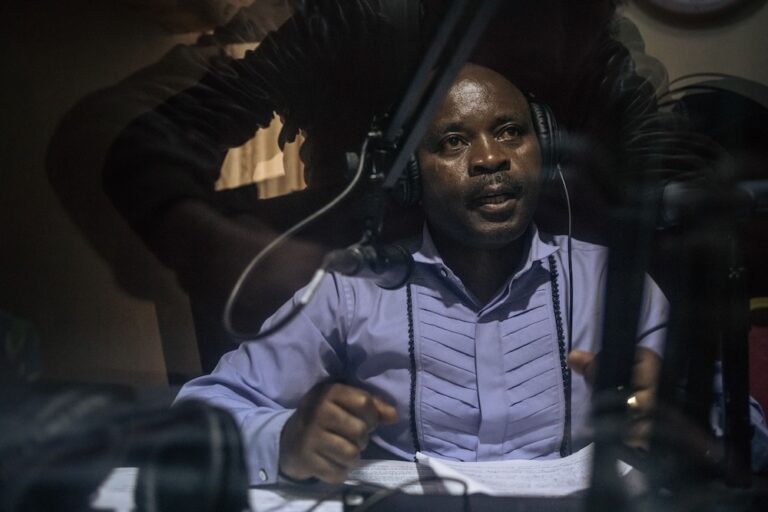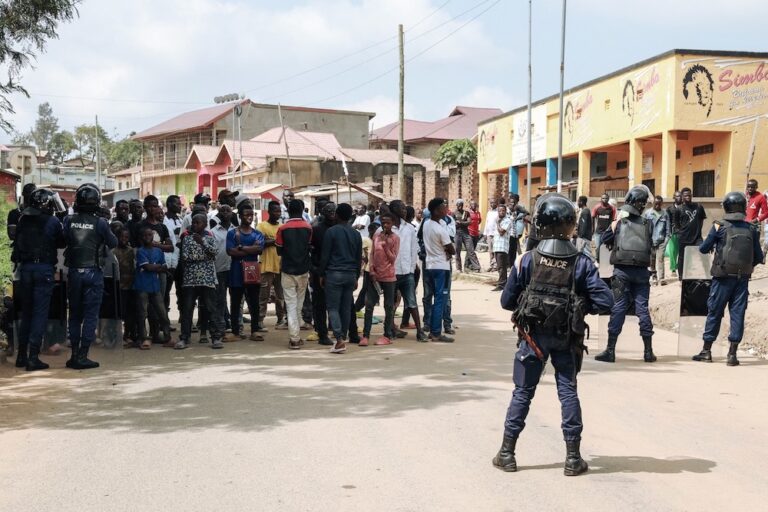(JED/IFEX) – The following is a JED press release: Kinshasa, 10 December 2001 Twenty-five journalists have been imprisoned because of their work under Joseph Kabila On Monday 10 December 2001, Journaliste en danger (JED), a Democratic Republic of Congo (DRC) based non-governmental organisation that works towards the defence and promotion of press freedom, presented its […]
(JED/IFEX) – The following is a JED press release:
Kinshasa, 10 December 2001
Twenty-five journalists have been imprisoned because of their work under Joseph Kabila
On Monday 10 December 2001, Journaliste en danger (JED), a Democratic Republic of Congo (DRC) based non-governmental organisation that works towards the defence and promotion of press freedom, presented its 2001 Annual Report on Press Freedom during a press conference held at the organisation’s headquarters. This year’s report is titled, “The press freedom situation under Joseph Kabila”.
The report, the organisation’s fourth since its inception in 1998, highlights the fact that twenty-five journalists have been sent to prison, for various periods of time, for reasons linked to the exercise of their profession. Only one journalist remains imprisoned today, Frédéric Kitengie, a Johannesburg-based sports correspondent for Radio France Internationale (RFI). He is officially accused of having poorly managed US$600,000, which the then information minister, Raphaël Ghenda, received from deceased former president Laurent-Désiré Kabila in 1998, towards the purchase of equipment for the public television channel RTNC (Radiotélévision nationale congolaise). The journalist is actually blamed for interviewing Mr. Moise Katumbi, president of the Congolese football team Le Tout – Puissant Mazaembe, in Johannesburg. Katumbi is the brother of Mr. Katebe Katoto, a declared candidate for the DRC presidency.
Overall, under the younger Kabila’s regime, JED has logged forty-nine attacks on press freedom. They can be divided as follows: one journalist currently imprisoned, 10 journalists incarcerated for various periods of time who are now free, 14 journalists detained for questioning, five physical assaults on journalists, eight cases of threats or harassment, four cases of administrative, economic or judicial pressure, and seven cases of obstructions to the free circulation of information, both nationally and internationally.
Compared to the three years under Laurent-Désiré Kabila, it appears that the press freedom situation has improved under his son’s governance. Of the 80 registered cases of attacks against press freedom in 2000, 42 involved the imprisonment of journalists for various periods of time. In 1999, JED’s monitoring service logged 113 cases, of which 53 involved the loss of liberty. In 1998, JED noted 73 cases of attacks on the right to inform and be informed, of which 43 cases involved the loss of liberty.


